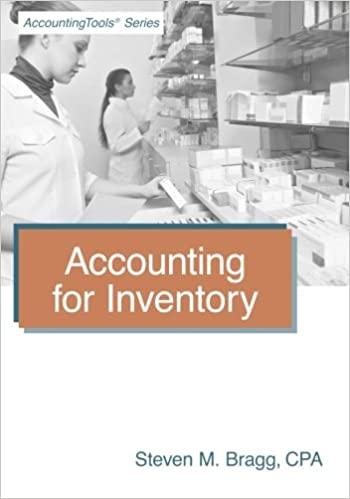Question
On 31 May, Roseville Floral Supply had a $155 000 debit balance in Accounts receivable and a $6 200 credit balance in Allowance for doubtful
On 31 May, Roseville Floral Supply had a $155 000 debit balance in Accounts receivable and a $6 200 credit balance in Allowance for doubtful debts. During June, Roseville made the following transactions:
a) sales on credit, $590 000 (ignore cost of sales)
b) collections on account, $627000 c) write-offs of bad debts, $7000.
Requirements
1. Record sales and collections on account. Then record bad debt expense (3% of credit sales) and write-offs of customer accounts for June using the allowance method. Show all June activity in Accounts receivable, Allowance for doubtful debts and Bad debt expense (post to these T-accounts).
2. Suppose Roseville used a different method to account for bad debts. Record sales and collections on account. Then record bad debt expense for June using the direct write-off method. Post to Accounts receivable and Bad debt expense and show their balances at 30 June.
3. What amount of bad debt expense would Roseville report on its June income statement under each of the two methods? Which amount better matches expense with revenue? Give your reason.
4. What amount of net accounts receivable would Roseville report on its 30 June balance sheet under each of the two methods? Which amount is more realistic? Give your reason.
Step by Step Solution
There are 3 Steps involved in it
Step: 1

Get Instant Access to Expert-Tailored Solutions
See step-by-step solutions with expert insights and AI powered tools for academic success
Step: 2

Step: 3

Ace Your Homework with AI
Get the answers you need in no time with our AI-driven, step-by-step assistance
Get Started


